Last Tuesday, Feb. 9, I learned of a Facebook fan page dedicated to “Killing your hooker so you don’t have to pay her.” As a sex worker ally, sexuality scholar, and someone invested in the humane treatment of all people, I became dedicated over the next 24 hours to shut that page down. I immediately reported the page to Facebook administrators, and encouraged all of my Facebook friends to do the same. On Wednesday, Feb. 10 at 1:26 pm (PST) when the site was still up, I posted the following to my Facebook friends:

“In less than 24 hours, I have seen the FB site dedicated to “killing your hooker” increase from 17,500 fans to now more than 22,000. Please join me in kicking this FB group out of our community; report it to the FB directors. This group is in clear violation of FB rules, including: 6. You will not bully, intimidate, or harass any user.7. You will not post content that is hateful, threatening, … etc”
Many other sex worker activists and humanitarians across the globe were simultaneously doing the same work. By Wednesday at 5 pm (PST), just over 24 hours after I learned of the site, and just days after its creation, Facebook administrators deleted the site. For Facebook, this was not a matter of “free speech”; it was a matter of a clear violation of their community rules. (Hate groups and bullies all of kinds are free to proliferate on the internet, but are not welcome on specific community membership cites such as Facebook).
Unfortunately, I fear and see that this is just the beginning of hate-speech pages on Facebook. Because Facebook allows anyone to set up an account, and because (at least for now) it seems that Facebook administrators are not pro-active in monitoring hate groups, everyday Facebook users (people like me who would otherwise be taking breaks from work to post about their kids or their cats) have found that they have an ethical obligation to also watch out for and report Facebook hategroups.
The group Feministing.com is one such group that this week has found itself to be one of these reporting the abusive, hate-filled page. As might be expected, those behind the “killing your hooker” fanpage are not happy about the critique. Here’s one quote from the “killing your hooker” folks:
“The worthless CUNTS over at Feministing are reporting you because they think they are the policemen (oops policePERSONS) of the internet. Let Feminist cunts know what you think about their crusade to silence all free speech they deem “inappropriate.” (see article in Carnalnation.com)
These slurs against women and feminists are as old as misogyny and a common tactic for diverting attention away from serious, grownup critique and dialogue. The issue of “free speech” is one that is incredibly important, but it is a principle that is always constituted and negotiated within particular parameters. “The internet” is a broad space that allows all (and hence not a true “community”), but Facebook is a smaller space with particular rules.
Carnalnation.com (the group reporting on this story above) is a community that is very much dedicated to freedom of speech and expression, but it too is absolutely opposed to the inclusion of hategroups in the Facebook community. In their mission statement Carnalnation states that:
“In our view, fear and disdain of all things sexual have led to a society that too often vacillates between impulsive titillation and compulsive repression. Such extremes can only have a negative impact on our physical, psychological, and social well being.”
Carnalnation.com is encouraging its readers to report hategroups such as “killing your hooker,” and has found that there are “232 (Facebook) groups that currently have the words “dead hooker” in them. (Dead Hooker Storage, Accidentally Pissing On A Dead Hooker, and A Dead Hooker A Day Keeps The Doctor Away are just three of them.)” Feministing.com is also reporting that “killing your hooker” now has simply morphed into a new Facebook fan page (still live as of this writing), entitled “GTA taught me that if you kill a hooker, you get your money back.” (note: GTA here stands for Grand Theft Auto, a video game.)
According to today’s Sydney Morning Herald the creator of “killing your hooker” has been identified. Who was the creator of this page, Gary Ridgeway?
(Gary Ridgeway, AKA “The Green River Killer,” is serving a life sentence for the murders of 48 women, most of whom he picked up on the streets of Seattle/Tacoma as prostitutes. After his sentencing Ridgeway admitted to a “career” of murdering 71 women.)
No, the source of “killing your hooker” is an Australian boy described as a “Catholic school student”:
A Catholic school student has been “dealt with” after he set up a Facebook page that appeared to advocate killing prostitutes. … The principal of St Laurence’s College in Queensland, Ian McDonald, confirmed a student from the school had been disciplined over the creation of the page.
“It has been sorted out and the boy has been dealt with,” Mr McDonald told AAP on Friday.
Ian McDonald, the principal of the private Catholic school (which at least one Australian newspaper describes as “elite”) went on to underscore that:
“This didn’t happen at the school, but does highlight the fact that we really need to educate the students about the dangers on the internet.” (emphasis mine).
In this logic, the magical, uncontrollable “internet” is the problem, as opposed to cultures that support (or do not directly challenge) the violent degradation of entire groups of people.
Case in point: In one of the several online groups discussing this case today, “Middie” complains about people taking this issue too seriously:
There are so many sites going against this. Jesus people, take a fucking joke. Do you realize this is based on the game GTA? I know the guy that did it, and i’m pretty sure he didn’t make it for real life hookers. By the way, hookers are illegal, so they have no fucking rights in my eyes. (emphasis mine).
Dear Principal McDonald: please note that that “Middie” is probably one of your students. These attitudes do not come to exist in a cultural vacuum. The culture of your school is what you need to be concerned with, not the “internet.”
Dear “Middie“: your point brings us precisely to the larger problem of a lack of support for the human rights of all, including sex workers. And although prostitution is actually LEGAL in parts of Australia (where you apparently currently reside), your point illustrates the need for clearly articulated and enforced sex workers rights in Australia and elsewhere.
Principal McDonald, parents, internet and sexuality scholars and activists, please do not blame “the internet” for sites like this; we must investigate how our own assumptions promote (or stay silent on) everyday acts of cruelty.
_______
Postscript:
In addition the obvious humanitarian need to oppose the degradation of any group of people, many public health scholars emphasize the importance of reducing stigma for sex workers. Here is a link to a recent blog post by Dr. Petra Boynton, on Sex workers, Stigma, and Barriers to Health.


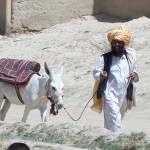




 January 13, 2010 – 7:00am
January 13, 2010 – 7:00am

 NEW YORK: “President Museveni, Ethics Minister Nsaba Buturo and MP David Bahati have been linked to a shadowy religious fundamentalist group in the United States known as the ‘The Family’. …According to journalist, academic and author Jeff Sharlett, who has spent years researching on The Family, its core agenda includes fighting homosexuality and abortion, promoting free-market economics and dictatorship, an idea they once termed ‘totalitarianism for Christ’. “
NEW YORK: “President Museveni, Ethics Minister Nsaba Buturo and MP David Bahati have been linked to a shadowy religious fundamentalist group in the United States known as the ‘The Family’. …According to journalist, academic and author Jeff Sharlett, who has spent years researching on The Family, its core agenda includes fighting homosexuality and abortion, promoting free-market economics and dictatorship, an idea they once termed ‘totalitarianism for Christ’. “
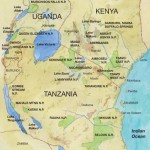
 “Uganda’s new
“Uganda’s new 
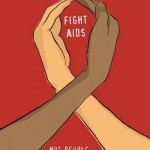
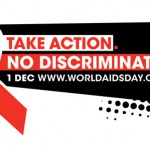
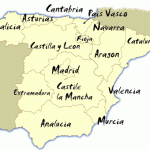
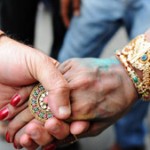
 the repeal of 377 was the change in mentality of judges, parliamentarians and everyday Indians since the petition was filed in 2001. Activists in India have led painstaking efforts in India to increase awareness about how HIV/ AIDS cannot be addressed in a punitive environment and to increase support for the rights of LGBTQI people (
the repeal of 377 was the change in mentality of judges, parliamentarians and everyday Indians since the petition was filed in 2001. Activists in India have led painstaking efforts in India to increase awareness about how HIV/ AIDS cannot be addressed in a punitive environment and to increase support for the rights of LGBTQI people (